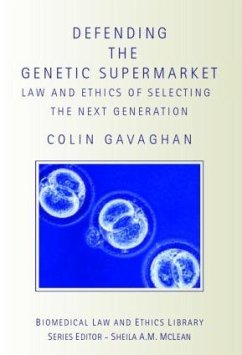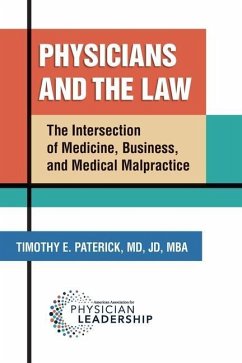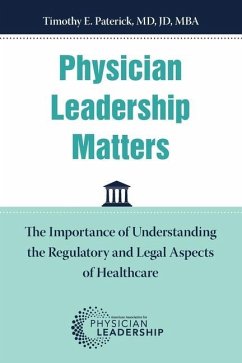
Issues in Medical Law and Ethics
Versandkostenfrei!
Versandfertig in 1-2 Wochen
73,99 €
inkl. MwSt.
Weitere Ausgaben:

PAYBACK Punkte
37 °P sammeln!
Thirty years ago, English jurist Patrick Devlin wrote: "Is it not a pleasant tribute to the medical profession that by and large it has been able to manage its relations with its patients ... without the aid of lawyers and law makers". Medical interventions at the beginnings and the endings of life have rendered that assessment dated if not defeated. This book picks up some of the most important of those developments and reflects on the legal and social consequences of this metamorphosis over the past ten years, and will be of interest to students of law, sociology and ethics who want a consid...
Thirty years ago, English jurist Patrick Devlin wrote: "Is it not a pleasant tribute to the medical profession that by and large it has been able to manage its relations with its patients ... without the aid of lawyers and law makers". Medical interventions at the beginnings and the endings of life have rendered that assessment dated if not defeated. This book picks up some of the most important of those developments and reflects on the legal and social consequences of this metamorphosis over the past ten years, and will be of interest to students of law, sociology and ethics who want a considered and critical introduction to, and reflection on, key issues in these pivotal moments of human life.














